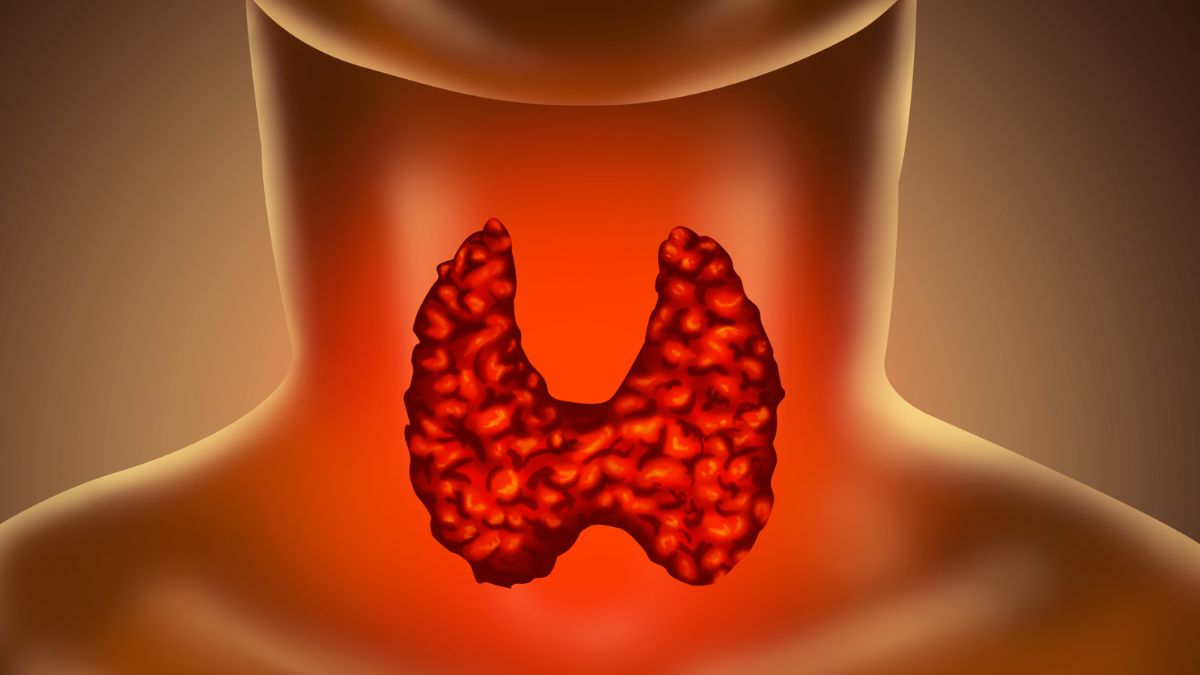- By Kashish Rai
- Tue, 05 Mar 2024 03:17 PM (IST)
- Source:JND
The endocrine system includes the thyroid gland as a vital organ. Just above the junction of your collarbones, it is situated at the front of the neck. Every cell in the body is governed by the hormones produced by the thyroid. This process is known as metabolism. When the thyroid gland does not produce enough thyroid hormone, the condition is known as hypothyroidism. This syndrome is frequently referred to as underactive thyroid.
Depending on how severe the problem is, hypothyroidism can have different symptoms. Let us check out 9 warning signs of this disease which need to be addressed.
Warning Signs Of Hypothyroidism
1. Fatigue
Exhaustion is a major indicator that a patient has hypothyroidism; however, the type of exhaustion brought on by hypothyroidism is not the same as regular weariness. Even with enough sleep, patients with an underactive thyroid frequently complain of excruciating fatigue. In addition to their physical exhaustion, hypothyroidism sufferers also experience cerebral exhaustion and forgetfulness.
2. Dry Skin
A typical sign of thyroid dysfunction is skin problems. This is due to the fact that thyroid hormones control skin cells, just like they do most other cells. Thyroid hormones, specifically, regulate the pace at which skin cells turnover or the rate at which skin regenerates. The most typical symptom of hypothyroidism in individuals is dry skin.

Located at the front of the neck, the thyroid is a gland shaped like a butterfly. (Image Source: Canva)
3. Thinning/Loss Of Hair
Patients with thyroid problems, especially those with hypothyroidism, frequently describe changes in their hair. The production of new hair by the body is influenced by thyroid hormones; low thyroid hormone levels hinder this process.
4. Digestive Problems
Patients with hypothyroidism may have various symptoms in addition to stomach and digestive problems. Patients with an underactive thyroid are susceptible to an overabundance or imbalance of bacteria in their digestive systems due to low thyroid hormone levels. The symptoms of hypothyroidism include bloating, nausea, diarrhoea, stomach discomfort, and loss of appetite.
5. Weight Changes
Weight changes are a result of hypothyroidism in patients. Unusual thyroid hormone levels cause the body to turn food into energy at varying rates since the hormones are essential for controlling metabolism. This leads to weight gain or weight loss at a rapid rate.
6. Irregular/Heavy Menstrual Cycle
Menstrual cycle irregularities may indicate a thyroid issue. There may be signs such as irregular periods, scanty periods or heavy periods. Amenorrhoea, or not getting your period, can potentially be a warning indication.
7. High Blood Pressure
Your blood arteries may become more rigid due to hypothyroidism, an underactive thyroid gland, which will make it more difficult for your heart to pump blood to every area of your body. Hyperthyroidism, the hyperactive thyroid gland, can cause an increase in blood pressure and a quicker heartbeat.
8. Constipation
Constipation may indicate hypothyroidism, a condition that reduces the frequency of urination. Diarrhoea and loose stools can sometimes be symptoms of thyroid issues. In general, hyperthyroidism may be the cause of diarrhoea or irritable bowel syndrome, whereas severe or chronic constipation is often linked to hypothyroidism.
ALSO READ: 7 Best Intimate Care Tips For Women For Good Vaginal Health
9. Blurred Vision
Thyroid disorders can occasionally result in an accumulation of excess fluid in the tissues around your eyes. This may result in an enlargement of the muscles controlling your eyes, impairing your ability to focus and see properly. Additionally, the person could have double vision.
(Disclaimer: This is based on general public information. Jagran English does not confirm its veracity. Before adopting any measures, consult an expert from the relevant field.)

